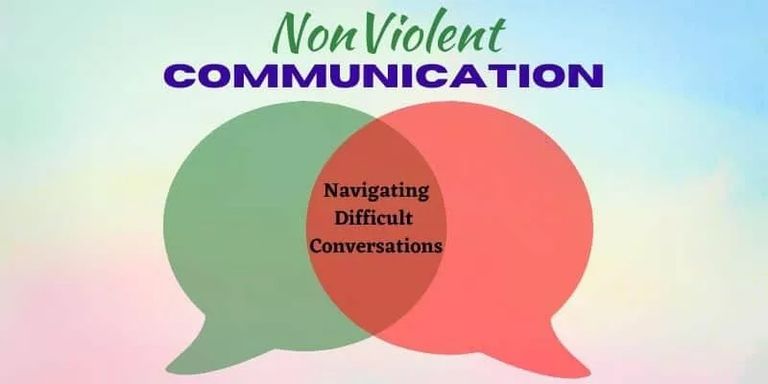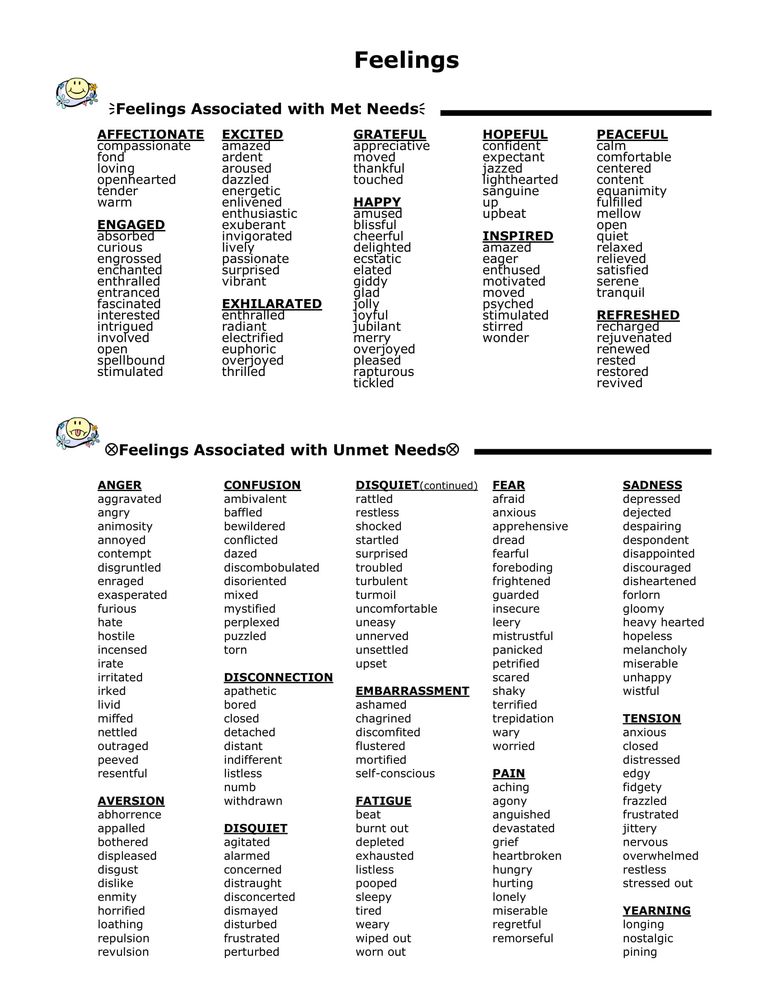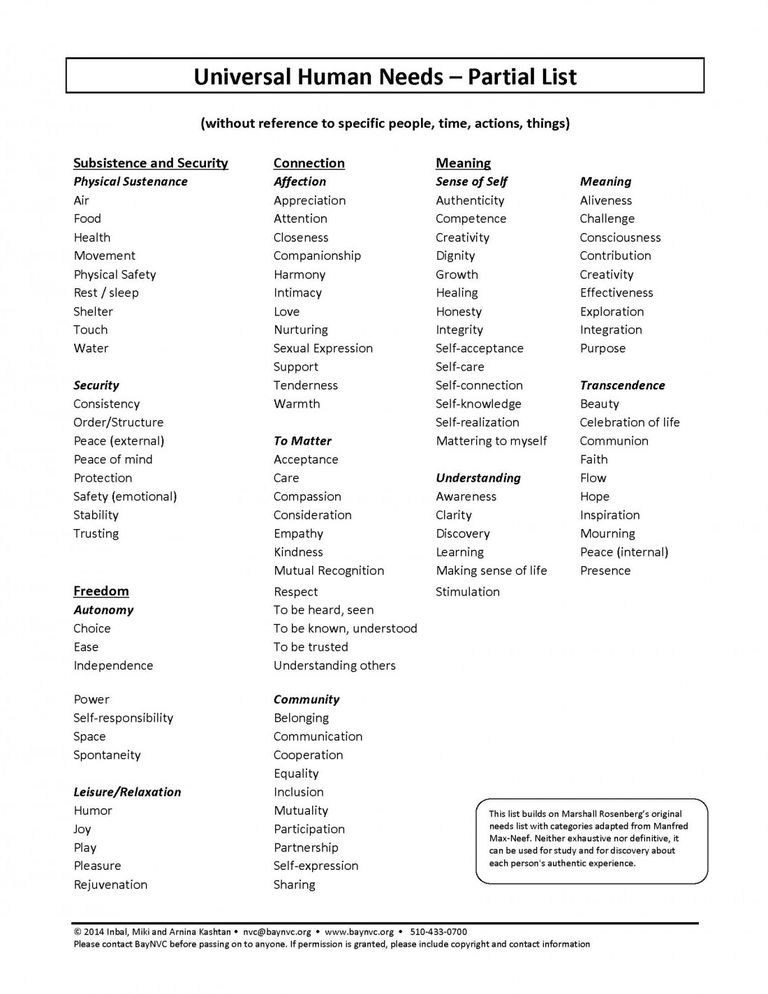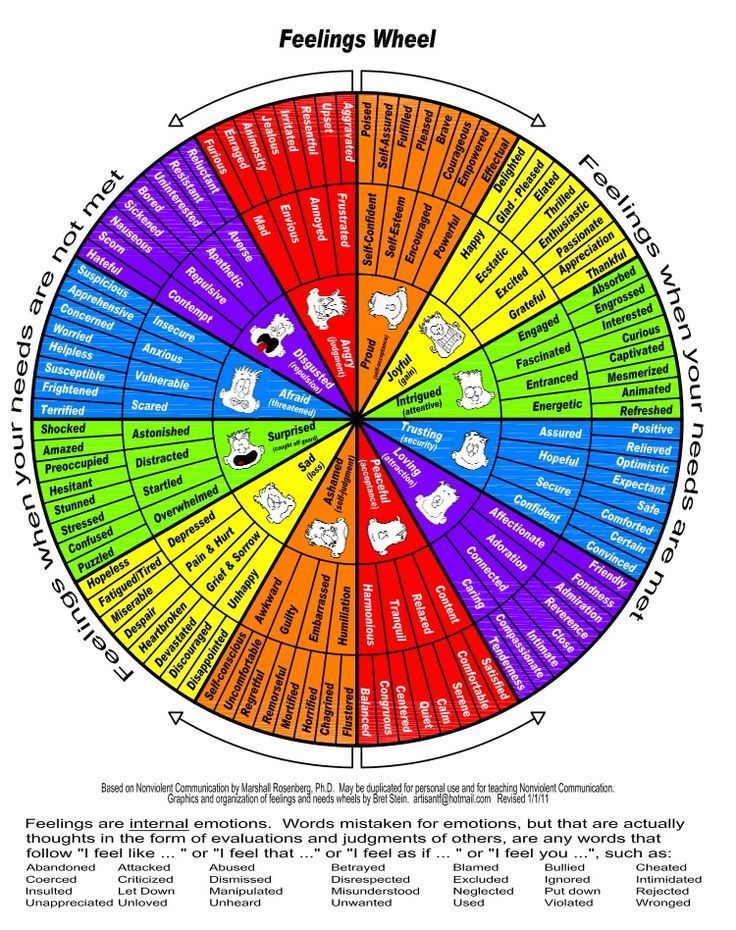
Communication consists of two parts, one is speaking and the other is listening. When we are in any kind of discussion, and especially one where we are dealing with a problem or conflict, it can be a great challenge to really know what the other person is trying to tell us. I say trying because most of the time people are very judgemental and critical of others when they are sharing how they feel. It is a part of our normal way of communicating for a person who is try to share how they feel to spend most of their time telling the other person not how they feel but rather judging and criticising the other person for something they have done, or not done. When we feel like our needs are not being met, it is all too easy to blame another person for not fulfilling our needs and to judge them. Since no one likes to be judged or blamed it usually leads to a fairly unproductive discussion where the other person is actually more concerned with defending themselves rather than really being able to listen and understand what the other person is trying to say. This defensiveness usually results in us pushing back , blaming the other person, or trying to justify their actions or behaviour by bringing up past events or reasons that they have behaved in a certain way. This dynamic is totally unproductive, feels very heavy, and usually leads to even more negative feelings and escalation of the situation.
How do we de-escalate a challenging conflict without having to accept the blame, fight back or try to justify our actions? We may feel like it is not fair to be blamed or judged for our actions, because life is usually more complicated than being right or wrong, and often its a long history of unresolved feelings that really are the cause of our grievances. What if there was a way to handle this that actually led to a productive conversation where you didn’t have to feel like you were defending your existence and deny your own needs. What if there was a way to bypass all of that tension and negativity and judgement even when it is being hurled at us? Well this post is here to share the way forward, so that we can totally give up the whos right game and instead really hear what the other person is trying to say rather than what they are actually saying. The key to being able to listen to someone in this way is to understand that every judgement and criticism that comes your way is just a tragic expression of someone trying to tell you what they need.
There is a very simple way to achieve this, to be able to bypass the "whos right" game so that when you are in a conflict or discussion you can actually make amazing progress, in no time at all and completely bypass those heavy and difficult criticisms that keep coming our way. The secret to being able to disarm someone who is really upset is to ask the right questions, and learn to listen to the words that come in between the judgements that come our way. Rather than instinctively trying to defend ourselves, and spend most of out time thinking or reasons and justifications for our actions, instead we are listening intently for something else. It can be difficult at first to not respond in a defensive way, because we want to be exonerated for our actions since they are based on our own legitimate feelings that result from our own needs not being met. However, once we have taken just a few steps in the right direction and totally different flow starts to show up, and whatever anger and judgements that were coming our way stop almost immediately and instead are replaced with a very different mood from the person we are speaking with.
The problem is that the person speaking does not feel like their needs are important, and they are very frustrated since they don’t actually know how to express them, and often are unaware of the needs that they have. The secret to listening is learning how to gently extract this information from someone so that they can finally get to the root of the problem being discussed. Its no use trying to resolve a problem by dilly dallying around the surface issues because they are just symptoms of the problem, but are not the actual problem. So, asking the right questions simply means helping the other person to understand what needs they have that are not being fulfilled. When we are TRULY listening to what the person is trying to say, without being concerned about any judgements or criticisms we are suddenly in a very powerful place to really listen and not get caught up in the dynamics of conflict.
To help you with this here is a list of feelings. There are SO many to choose from and you can use this list to help you give the other person some ideas about how they are feeling. They may feel one or more than one thing, and if they seem really stuck you can even show them this list. Whilst this may seem a bit weird, you will see that most people are very receptive to this because they know deep down that you are trying to really understand them and that is a HUGE gift that they may have never received before in their lives.

Source: https://thehappywanderersclub.com/feelingsandneeds/
There are two parts to achieving this simple conflict resolution, and they are about two things, feelings and needs. The questions you ask will always be to try to get the other person to start sharing about how THEY feel about something and then from that to get them so share their specific needs. This is achieved by asking the other person very simply how they felt about something that happened. For example, if we are often late and the other person is criticising us for it we have to start by getting them to share how that made them feel. At first this may well result in them sharing a judgement about it, such as, I feel that you are selfish.. but that is not what you are looking for. When you ask someone how they feel about something and they respond with a judgement, or the word YOU then they have not shared how they are feeling. SO, when someone says, for example, that they feel "YOU are selfish".. then rather than being concerned at all about being labelled as so, and then trying to defend yourself by saying, "NO, im not selfish, i am often late because".. blah blah.. instead we simple ask another question to try to get to their real feelings. So instead we simply ask them "How did that make you feel when i was late?" You can suggest some options which almost always gets them on the right track, such as.. "did that make you feel angry, or frustrated?" With a little bit of prompting they will normally then start sharing appropriately about how they feel, rather than continuing to diagnose and judge you.
You will start to see very quickly that once they have begun sharing how they felt, and you showing that you are really listening to this without trying to defend yourself that the entire dynamic starts to change. Note that at NO point should you be apologising for their feelings or desires or your actions, but instead just trying to identify every feeling that they have. Once they have done this, and shared how they really feel, then it is time to repeat it back to them. This is the time to fully acknowledge how they feel, by simply repeating it back to them so that they know you have fully listened and understood what they are saying. Normally we will immediately want to respond with a justification and that is a fatal mistake. When the other person hears you fully acknowledge their feelings they will be relieved almost instantly, to some degree, of much of their frustrations.. which is that they have probably never had their feelings truly acknowledged.
It is SO much easier to do this when they are just sharing their feelings rather than a judgement.. No one wants to acknowledge any judgements about us, but it is much easier to acknowledge a simple feeling. SO we can say something like, "OK so I hear that when i am late it makes you feel angry, and frustrated and even disrespected, is that right?" When you speak like this they will probably even smile as they feel like they have FINALLY been heard.
So now what? Where can we go from there? How can we progress to any kind of resolution or mutual understanding from this point with out then starting to defend ourselves. Once we have fully heard and understood how this makes someone feel we are ready to help them identify their needs. Identifying their needs is the whole point of this process, and is the point from which real progress can be made. We have to continue to ask the right questions so that we can first identify their needs and then finally, and most importantly seek a specific request from them that may help to improve the situation.
So using this same example about being late, we could ask something like, "What needs do me being on time fullfil for you?" Again we may need to give them some prompts since most people are not familiar with knowing what their needs are. Needs are often like unspoken desired that we all have and yet have never truly identified or spoken. So if they are not sure of what needs they have around you being on time you could ask them, do you have the need for predictability, or consistency, or peace of mind, or reliability, or independence, or partnership, or consideration? You see, there are so many needs that we have that could be related to this, and by feeding them with the many options you will very quickly help them to discover what they are.
TO help you with this here is a list of needs that we have. You can use this list to help you to help them identify their needs. It is not always obvious what they are, and this list is like treasure as nearly always one or more of these needs will be correct. As i say, once you have prompted them with the right need you are going to see an immediate response and also you will notice that they will be very relieved and even happy once they have finally managed to identify it.

source: https://baynvc.org/list-of-needs/
You may also find this feelings and needs wheel useful as it categorised them and allows us to understand them in more depth

Source: https://thehappywanderersclub.com/feelingsandneeds/
Once you have completed this step you will both be in a position to finish the conversation. This part is very important and will require some thought and perhaps some compromise from one or both of you. Finally you are ready to ask them to make a request! Its important to understand that you are in no way obliged to fulfil their requests, but you must ask them if there is something that you can do to help to resolve the issue. So you can simply ask them, "Is there something i can do to help you feel less angry", or to help you feel respected or honoured or whatever the needs are they you have identified. This is the time when you can make suggestions, especially if they are not really able to provide anything that you feel you can do. For example if they simply say, "Well. you can stop being late", then that may not be practical. SO instead you can make suggestions depending on the situation. For example you could say, " What if when i am going to be late, would it help you if I called you or messaged you to let you know that i am delayed?" Their response should be one that they are comfortable with, and it may take some discussion to really find a way that both of you can have your needs met.
This final stage may not always lead to a productive or full solution, BUT, let me tell you that even if you are not able to meet their requests, the very fact that you have gone through this process and that at the very least that they feel like you have made the effort to truly listen to them and understand them will be a powerful changing force in future. Note that if nothing else you will have bypassed a potentially long conflict of judgement, blame, and defensive responses. That in itself is progress.
Making requests and finding way to meet another persons needs is not always easy and it takes time to really learn how to find the solutions. Sometimes we can find a solution that just involves making it up to them in other ways. Maybe you just cant avoid being late, but you can make it up to them by doing something that helps them fulfil another of their needs. You could offer to spend quality time with them, or cook for them, or take them out for a special dinner, or ANYTHING at all that you know they would appreciate so much that it would make up for you being late. You will see that it becomes quite easy to do this WHEN and ONLY WHEN you have taken the time to listen to and understand their feelings and needs.
Going through this process brings a special connection to the relationship, and also nurtures our own compassion and understanding, such that we have a genuine desire to help them through it. Its only because we took the time to listen, and repeat back their feelings and needs that we have connected with them ourselves and then have a genuine desire to help them achieve them.
And that my friends is it! This is something you can practice with your friends or family, and you can even tell them that you are trying to learn how to communicate better and are trying this out. It may seem a little bit strange to have such an intentional way of communicating, but most people will be receptive when they understand that you are actually trying to make things better, and that you are doing so without trying to make them change anything about themselves. Since at no time will you be blaming them, or denying their feelings, or needs, you will see that most people will be happy to engage you with this process. You can of course start with an issue that is not so heavy or challenging and practice with that, rather than trying to do this with the most difficult problems. With time, if you do this, you will see it starts to come very naturally, and you will feel SO much better afterwards.
If you would like to try this and have any questions, or would like some guidance about a particular issue that you are facing please do feel free to ask me in the comments.
Thumbnail Source: https://insightfulcounselling.com/what-is-nonviolent-communication/